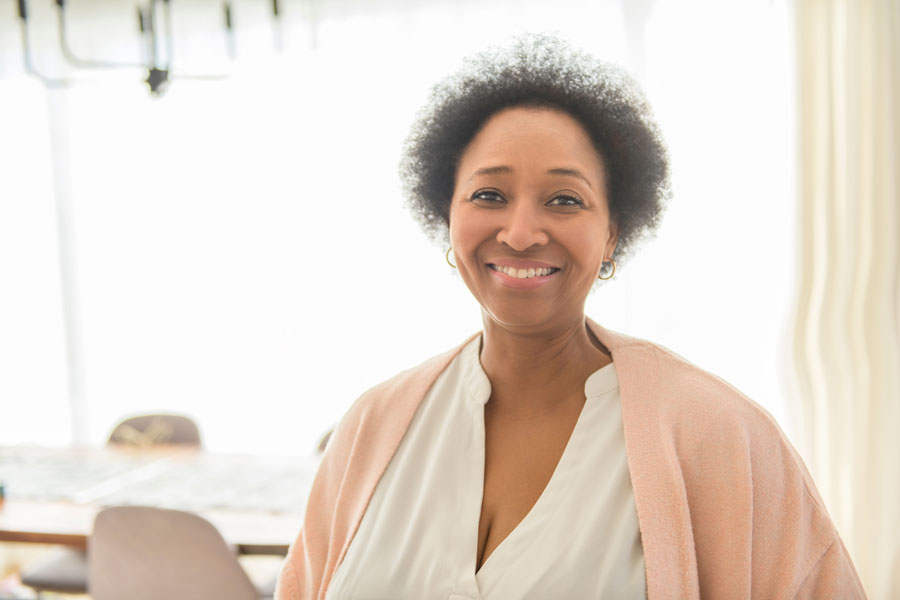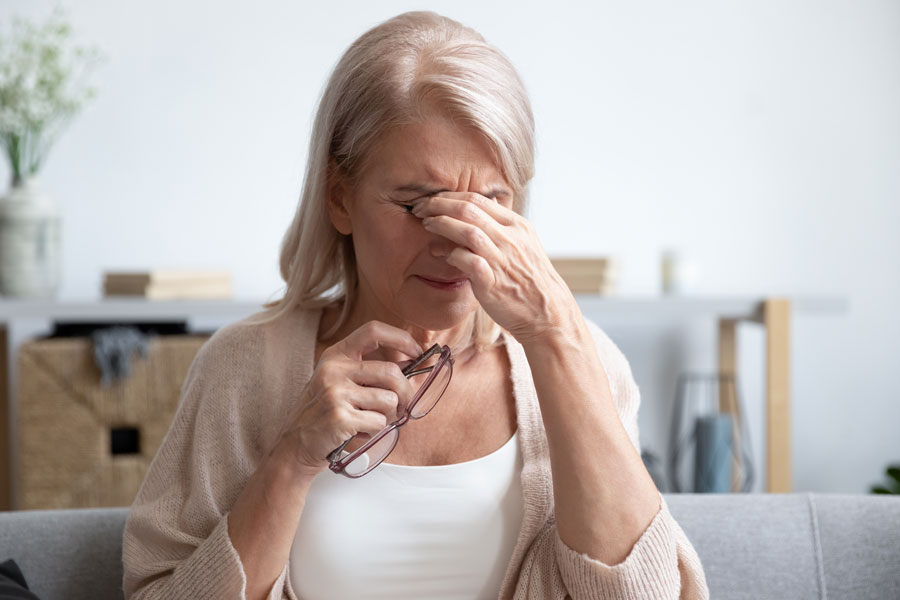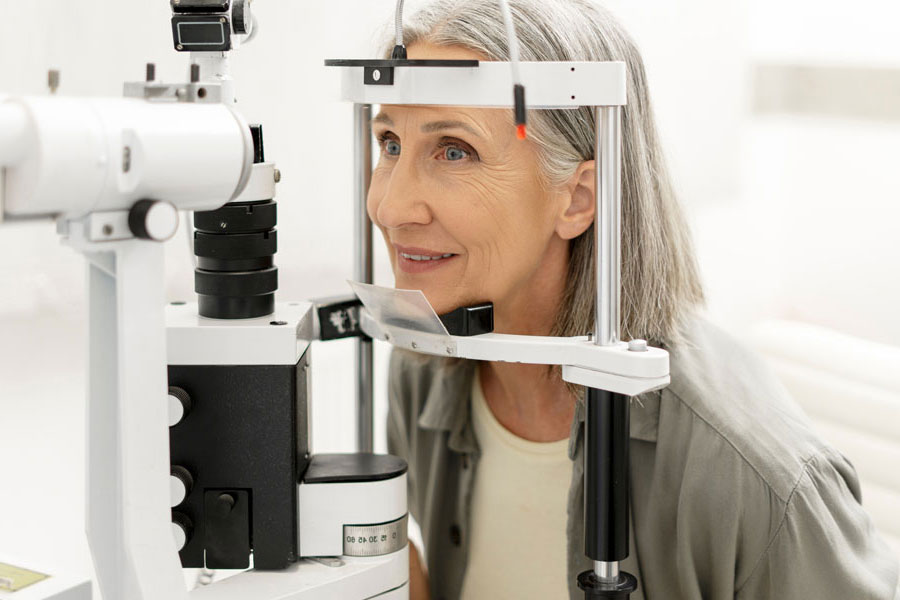Aging Eyes:
Common Vision Changes After 60

Cataracts:
Clouding the Clear Lens
Cataracts in older adults occur when the clear lens of the eye becomes cloudy, causing blurry vision and difficulty seeing at night. Cataracts often develop slowly and can be treated effectively with surgery when they begin to affect your daily activities. Candidates for cataract surgery are usually between 65 –75 years old, but some may be eligible earlier or later than that.
Signs to watch for:
- Blurred or cloudy vision
- Trouble seeing in low light or at night
- Increased sensitivity to glare and bright lights
Glaucoma:
The Silent Thief of Sight
Glaucoma damages the optic nerve—often due to increased pressure inside the eye—and can cause permanent vision loss if not detected early. It develops gradually and typically has no noticeable symptoms in its early stages, making the importance of regular eye exams for seniors impossible to overstate.
Glaucoma symptoms in seniors may include:
- Gradual loss of peripheral (side) vision
- Tunnel vision in advanced stages
- No early warning signs in many cases


Macular Degeneration:
Blurring Your Central Vision
Signs to watch for:
- Blurred or distorted central vision
- Difficulty recognizing faces
- Straight lines appearing wavy
The Importance of Regular Eye Exams
Many age-related eye conditions begin without obvious symptoms. That’s why senior eye health tips always include routine comprehensive eye exams. Early detection can mean the difference between preserving and losing your sight.
Preventative Strategies for Healthy Vision
While aging eyes after 60 is inevitable, there’s a lot you can do to prevent age-related vision loss:
- Schedule annual comprehensive eye exams
- Wear sunglasses that block 100% of UV rays
- Eat a nutrient-rich diet with leafy greens, colorful fruits, and omega-3 fatty acids
- Manage chronic conditions like diabetes and high blood pressure
- Stay active to promote good circulation and overall eye health

Protect Your Vision Starting Today
Your eyes have served you faithfully through every milestone, and they deserve the best care in your later years. At Buffalo Ophthalmology, we specialize in diagnosing and managing common eye problems after 60 with precision, compassion, and the latest technology. Whether it’s detecting glaucoma before it causes vision loss, managing cataracts, or helping you adapt to presbyopia, our team is here to guide you every step of the way.
Don’t wait until symptoms become unavoidable. Protect your sight, your independence, and your quality of life with regular eye exams and expert care.
Call Buffalo Ophthalmology today to schedule your comprehensive eye exam and take the first step toward clearer, healthier vision.
Request An Appointment
"*" indicates required fields
